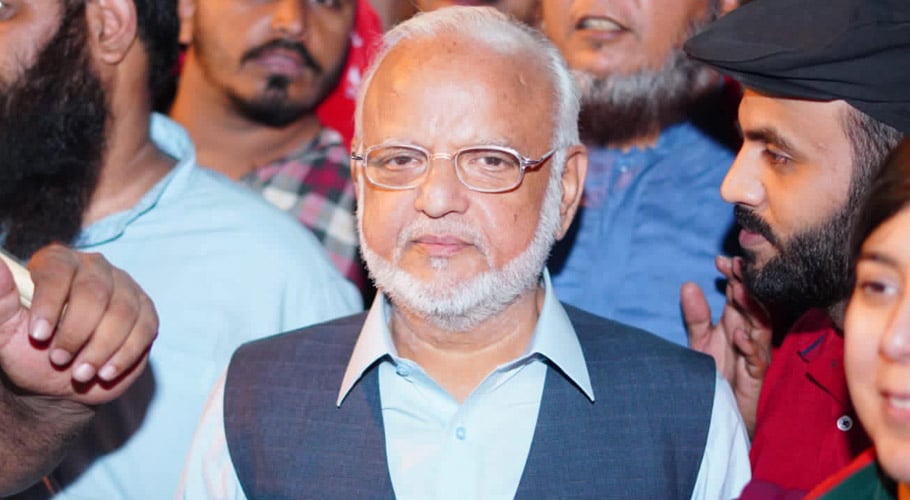The Supreme Court of Pakistan has granted bail to Senator Ejaz Chaudhry of the Pakistan Tehreek-e-Insaf (PTI), who was arrested in connection with the May 9 incidents. The court’s decision to reject a petition for transferring the case highlights the independence of the judiciary and establishes an important precedent in Pakistan’s legal system.
On Friday, a three-member Supreme Court bench, led by Justice Naeem Akhtar Afghan, approved Chaudhry’s bail, ordering him to submit PKR 100,000 in surety bonds. Chaudhry’s lawyer noted his client’s custody since May 11, 2023. The special prosecutor alleged Chaudhry incited unrest and conspired, but Justice Afghan countered that a strong case would have led to a military trial, as seen with 600 others. He emphasised that bail should not serve as punishment.
Read: PTI Leaders Indicted Over May 9 Vandalism by Anti-Terrorism Court
In a detailed four-page verdict, the Supreme Court dismissed the Punjab government’s request to transfer May 9-related cases. The court affirmed the Lahore High Court Chief Justice’s authority under Article 203 to protect judicial officers from administrative interference. It also rejected a reference against an Anti-Terrorism Court judge for lack of evidence, reinforcing judicial autonomy.
The ruling clarified that personal remarks about state officials, whether critical or complimentary, lack binding effect and cannot justify case transfers. Such matters fall under the Chief Justice’s administrative oversight, not judicial intervention.
The Supreme Court’s decision highlights Pakistan’s commitment to judicial independence. The Supreme Court’s bail grant to Ejaz Chaudhry and rejection of the May 9 case transfer petition mark a pivotal moment for Pakistan’s judiciary. The court reinforces its role in protecting constitutional principles by upholding independence and fairness.






